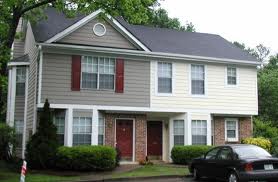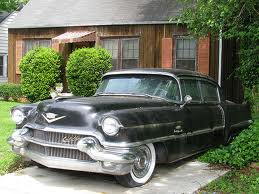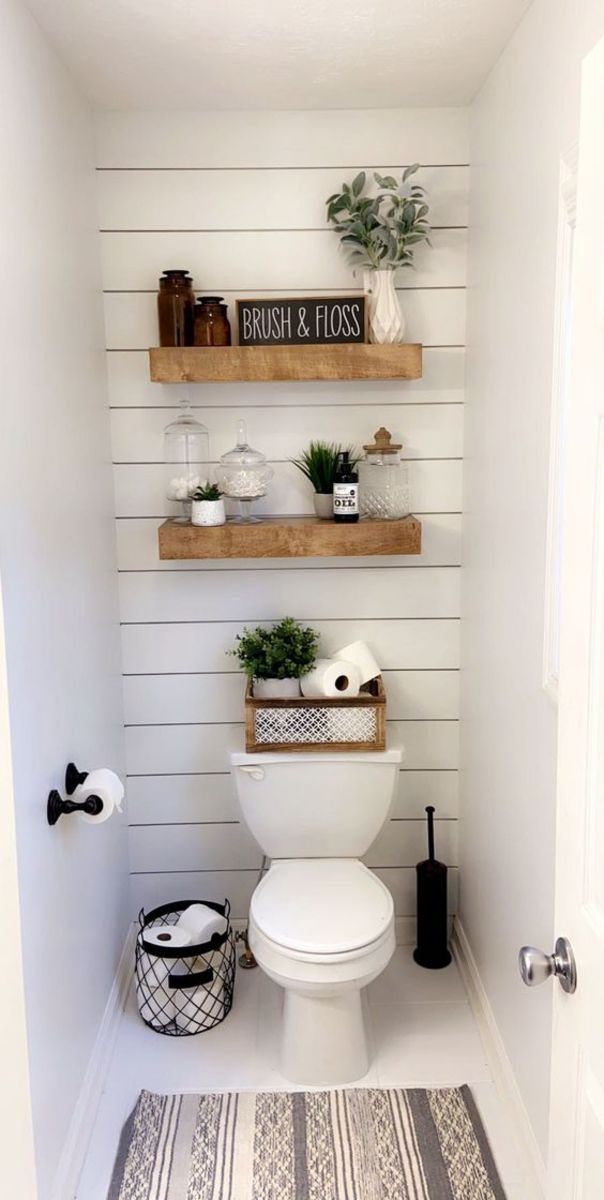CHECKPOINT FOR SURVIVAL ASSESSING YOUR NEEDS

Checkpoint For Survival Assessing Your Needs
Setting up home for the first time can be a daunting project. Make sure you plan before you move.
Most of us take it for granted that we have a roof over our heads-first the parental home, then college or university and, perhaps finally, a rented flat-and don't worry too much about how we would set about buying a home of our own. It sounds easy in theory and, of course, lots of people do it. But when it comes down to the actual practicalities of finding a place, buying it and moving in, you do need to know what you are doing or you could find yourself spending a great deal of money and finishing up with something you don't really like. The most important consideration for your first home is how long you plan to stay there. This will dictate what you buy and what you do it. If you plan to stay only a short time-perhaps one to three years-it's probably sensible to buy something that's modern, in reasonably good condition so you don't have to spend a lot of money and effort improving it, and in an area where you know prices are rising so that you will have some extra money in hand when it comes to buying your next property.
If you are planning on a medium-term stay of, say, five to eight years, you'll have time to tackle fairly major improvements. You will be able to buy somewhere that needs doing up secure in the knowledge that you can take time over it when energy and finances allow. Most people today tend to move every eight to ten years, as their housing needs change or work dictates. A few people do manage to put down roots and stay in a home for ten, twenty, even thirty years. If you think you're one of these people, it's obviously worth hanging on and finding your dream house first time round. However, remember the search may take you a long time, so it could be worth taking the short- term option of buying a stop-gap that is easy to sell, to give yourself time to find a property that is exactly right for your long-term needs.
Bear in mind, too that to make a real home you need possessions as well as the right structure. Some people go through life buying ever bigger and more expensive houses which they do up and sell at a profit but never have anywhere that looks and feels like a real home when they are in it. Life gets more expensive as time goes by, especially in families with children, so it's a good idea to spend your early home-making days buying beautiful things that will always give you pleasure, whatever setting you put them in. Further on in this are lots of ideas for both portable and permanent furniture and furnishings.
House Versus Flat
Deciding whether to buy a house or a flat will be dictated by their availability in your price range and what you want from your new home. Flats are usually easy to resell and may-if they are not on a ground floor be more secure from break-in than houses. However, flats in purpose-built blocks often carry heavy charges for services such as removal of rubbish and a porter who looks after the entrance hall. Flat owners usually have no control over the size of the service charge and, although it may seem reasonable when you buy, it may increase annually and turn out to be very expensive within three or four years. There is also the question of maintaining the exterior and services of the block, which have to be done at specified intervals. These may occur when you don't have the money. In a house you have no service charge and can yourself decide when to repair the roof or renew the drainpipes.
That said, flats are good places for setting up home for the first time if you want somewhere that is easy to run and doesn't require much maintenance. You won't have a garden of your own, but there may be a communal one which is kept tidy through the service charge. Houses require more maintenance and you will have to do what gardening is necessary.

How Much Should You Spend?
Unless you are fortunate enough to own a large amount of capital, you are going to have to borrow money to buy your new home. Most people have mortgages through building societies, usually with a society with whom they have been saving money for some time. Mortgages are also increasingly available from banks and, in smaller numbers, from insurance companies and finance houses. You can approach your building society (or societies) and bank yourself to see what sort of a mortgage they are prepared to give you, or you can employ a mortgage broker or insurance broker to find one for you. There are different types of mortgage: with a repayment mortgage you borrow the money you need and every month for the period of the loan you pay the same sum (subject to fluctuations in the interest rate). This means that initially you are paying off the interest and only after a few years do you start to pay off the capital sum, so if you end the mortgage or want to change it after a few years you won't have paid off much of the sum you originally borrowed. However, the interest on a repayment mortgage is tax free up to $30,000, so in the early years when you are paying it off you benefit from this tax relief.
The option repayment mortgage is intended to help people who pay no or little income tax and thus won't benefit from tax relief. It is similar to a standard repayment mortgage except that you pay less in the early years and more later when you have, hopefully, reached a higher tax level.
With an endowment mortgage you pay more each month but the loan is linked to an endowment assurance scheme. When the endowment policy into which you are paying matures, you use the sum you receive to pay off the capital of the loan in a single payment. This is a good scheme for people who pay a lot of tax as all the monthly repayments are either an assurance premium (which, if taken out before 14 March 2002 attracted a reduced rate of tax), or interest, which is subject to full tax relief.
There are various types of endowment mortgage: 'without profits' gives you just the amount of money you need to pay off the money you borrowed to buy your home. A 'with profits' mortgage will give you more than you need, and so leave some capital in hand. With a 'low-cost with profits' endowment mortgage you get a sum of money somewhere between the ether two. Because this is all fairly complicated it is sensible to take professional advice from a building society or your bank manager on which would be the most suitable type for you-bearing in mind your particular financial circumstances.
In general, you can obtain a mortgage for two-and-a-half times the main breadwinner's salary plus a proportion of the other partner's salary. This, plus the amount of money you are prepared to put down as a deposit (only in certain circumstances will you be able to obtain a 100 per cant mortgage: 90 or 95 per cent is more usual) gives you an idea of the price you can afford for your property.
However, it may not be sensible to spend up to the maximum if you think that it is going to leave you short of cash each month. You must make regular payments of the mortgage, otherwise the organization who has granted it may foreclose on you. Work out, with help if necessary, what your outgoings will be on the sum you think you need to borrow.
Then look at what is left over each month and ask yourself if you will
(a) have enough to live on after you have paid up and
(b) be able to any home improvements or decorating that you may want to the new home.
Where Should You Look?
Deciding on the area you want to live in isn't easy. You may be restricted to fairly small areas because of where you work or because of transport, or you may be able to choose over a wide spectrum.
Assuming you have some degree of choice there are a number of points to consider before you start hunting in earnest. Town or country is the first decision and will probably depend on where, and what hours, you work. Towns are busy and noisy but do offer a variety of people within easy reach and usually have lots of cinemas, theatres, galleries, colleges of further education where you can do evening classes, and good shops. The country is quieter and, in many people's eyes, more pleasant. But you may end up either miles from anyone or in a community where there are few people with whom you have anything in common. Going out anywhere can be a major expedition, a family or couple could need two cars for getting around conveniently. So before opting for that sweet country cottage you have always wanted think carefully about what you really need. Is transport to work and other activities easy? You may think that the peace of rural weekends compensates for hours of traveling to and from work, often in wet and wintry conditions and entirely-in fare terms-at the mercy of whatever price rises are decreed. But the reality could mean that you are too tired at weekends to do anything more than sleep off the exhaustion of the week. In that case you might as well live nearer to work and take trips to the country when you have the time and energy to enjoy them.
Friends are important, particularly where one partner eventually stays at home with small children. If you move to an area where you know no one you could find you have chosen somewhere where the community is mainly retired, or consists entirely of families with children and has none of the culture and nightlife you enjoy.
Look at an area's amenities. Do you crave a good library, a superstore, tennis courts or rare films? Find out what is available before you buy.
Plans For Development
Take particular care to find out if there are any local authority plans to change the area in any way. When buying your property, whoever is convincing for you should tell you about any schemes which directly affect it. How would you feel if the house next door was pulled down and a block of flats erected in its place? But they won't tell you that they are putting up a new school only a couple of miles away or running a motorway nearby after five years. These are things you should investigate yourself, since they could well affect your decision to live in a particular place.

Looking Around
Get as large-scale a map as you can of the area or areas you are planning to look in and draw a line round the districts you want to look at. Buy the local papers for those areas each week or arrange to have them posted to you on the day they come out. Take national papers which have good property columns. Finally, arrange to have your name and requirements put on the lists of all the estate agents operating in the areas.
Unless you are very specific about what sort of property you want, try not to be too rigid in your thinking There are plenty of people around who were convinced they wanted to live in a Victorian cottage but who are perfectly happy in a modern house which incorporates all the space and facilities they needed. You may be determined to have two bathrooms, or space you can use as a study. The more flexible you can be, however, the better chance you have of finding something that you really like that is either in good condition or has scope for development.
Estate agents will bombard you with details of properties, some of which may well not be what you are looking for. Go through the descriptions carefully and also study the local papers' property sales advertisements with care. Many of the latter will be private sales so you will need to telephone the owners to arrange to look round their house or flat. With estate agents you will usually be shown round by a member of the agency staff.
Before looking at any property you need to make a list of questions that you will ask either the agent or the owner. Be sure to take something on which you can write down the answers. You will also need a 10-metre steel tape in order to check any measurements in the house that might cause problems with items of furniture you already own. Measure these and write the dimensions in your diary or somewhere handy so that you can check on the spot whether your refectory table or extra wide cooker will fit into the space available.
When you have checked out the measurements sit down with the agent or owner while you are still in the place and ask about running costs. You need to know what the rates are, how much they have spent on heating in the past year (ask to see the bills), what money they have spent on maintenance or upkeep recently, what sort of insulation they have and-in a flat-what the current service charge is and how much it has gone up in the past few years.
Sitting down like this may also give you a chance to find out what they undoubtedly won't tell you, which is whether the noise from the street is bad (heavy lorries, nearby traffic lights, music from a boutique) and whether the neighbors can be heard through the walls. Noise can be one of the hardest things to live with and one of the most difficult to eradicate so the more you can find out about it the better.
Look at the property carefully from the outside as well as inside. Although you will , you can be sure that things like missing roof tiles, damaged gutters and rotting extreme woodwork will mean trouble and expense at some point, You may not mind this, and it may indeed be a lever you can use to get the price reduced, but it's certainly something to take into account.
Indoors, check the number of power points and find out when the wiring was last checked or renewed. Find out how old the central heating boiler is. Ask as much as you can about the general condition of the place and make notes If you are looking at a lot of properties it's very easy to get confused: when you are back at base it's difficult to remember what was said at each one. Don't worry about the decoration of a place since this is something that is relatively quick, cheap and easy to alter. And don't, while you are looking round, utter cries of 'We could knock that wall down' or 'We could rip that unit out: Save that till you get home. People are usually proud of their homes and have put effort into making them the way they like. It's disheartening for them to think that all their hard work is going to be undone by the incoming owner. It could mean they take a dislike to you and prefer another buyer in the instance of receiving two similar, simultaneous offers.
Making An Offer
Making an offer-although it may feel one of the most momentous decisions of your life-is actually extremely simple. All you do is inform the owner or estate agent how much you are prepared to offer for the property, subject to contract. (This phrase, whether spoken or written, means that, if you have to drop out because you just can't find the money or discover there is something wrong with the place you are not bound by a contract at this stage.) If the owner accepts your offer, you must then tell the estate agent or solicitor who will be doing the conveyancing (see below) and put down a small deposit-$50 will usually do-either with the estate agent or with the seller's solicitor. Mark your cheque with the words 'as stakeholder' to ensure that the money is kept separately from the general financial affairs of the solicitor or estate agent.

Surveying The Structure
The organization from which you are borrowing the money to buy your home will insist that it is surveyed professionally. This is merely to assure themselves that the property is worth the money they are lending, so that- in the event of your not keeping up with the mortgage payments - they have a guarantee that they can sell the place for the amount you have borrowed.
You will, however, need an additional survey to alert you to any defects in the structure which might make you decide either to withdraw from buying it or to persuade the seller to reduce the price because of the work needed on it.
You should always use a surveyor who is qualified and a member either of the Royal Institution of Chartered Surveyors (FRICS or ARICS) or of the incorporated Society of Valuers and Auctioneers (FIAS or AIAS). The head offices of the organizations will supply a list of their members in your area.
Surveyors' fees are not fixed and will depend on the amount of work involved in inspecting the property and producing a report. On older houses the cost is considerably more than on recently built ones. If you are happy about the property you are buying and don't want a full structural survey, you can use the Society of Valuers and Auctioneers' Home Buyers, Standard Valuation and Survey Report which gives a general description of the condition of the property and pinpoints any major defects and areas which need repair. You can ask whoever is providing your mortgage whether the ISVA Standard Valuation and Survey Report will be acceptable to them. If so, it can save you the cost of their surveyor's report. However, on property where you feel a full survey is necessary, discuss with the surveyor exactly what needs to be done. Be sure to give him/her enough time to inspect the property and produce a report (usually about10 days). If you are in a contract race with another person it may be difficult to get the survey completed on time.
A full survey will cover all the accessible parts of the building, together with the surveyor's opinion on the parts he can't see- for example, floors covered with fitted carpets. If repair work is needed, a surveyor should be able to give you some idea of how much the repairs will cost so that you can discuss the matter with the seller. The surveyor may well be able to recommend builders and specialist firms which can deal with problems like drainage and woodworm.
Making A Contract
The contract is the document which makes the property you are buying yours. You may get a solicitor to draw it up, use a conveyancing shop or do it yourself. Solicitors have, until recently, been the usual people through whom to purchase but legislation now allows for conveyancing organizations to be set up to do the job at less cost. You save still more money if you do it yourself, but to carry out all the searches necessary and to be sure that the final documents you produce are correct takes a lot of time and effort. With most properties - except those hedged about with arcane restrictions and problems - it is possible for a layman to carry out the conveyancing, but for most people the amount of work involved makes it more attractive to pay a professional.
Not that the fee you pay the conveyance is not the end of the matter. Land Registry fees are due on property on registered land to cover the cost of changing the facts on the Register. The cost of this is usually around1/4 per cent of the price of the property. Stamp duty is a tax on the sale of houses above a certain price. At present it stands at 1 per cent of the purchase price on all houses or flats costing over $30,000.
A solicitor's charge for doing the whole conveyancing job will be based on the amount of work involved but should not be more than about 1 per cent of the cost of the property plus CAT. Different solicitors may charge different amounts so ask for an estimate of the likely charge after you have discussed the work involved.
Once your solicitor and the seller's solicitor have agreed the details of the contracts these are then exchanged. Both you and the seller receive a copy which you sign. You then pay a deposit of 10 per cent of the cost of the property. less any stakeholder money you lodged with the estate agent. At this stage you are bound to buy the property or lose your deposit and the seller is bound to sell it to you and not to increase the price.
The final stage in the purchase is completion day when you get the keyes of the house and any documents connected with it. You don't usually see the deeds of the house as these are retained by the organization supplying your mortgage but it can be seen on request.
The time between exchangeing contracts and completion can be fairly short if you have sorted out the availability of the mortgage in advance.
The procedure for nuying houses in scotland differs from that described above which applies only to buying property in England and Wales; many people think the scottish system is simpler. It is described in detail in a booklet. Buying or selling a house? Free with SAE to the Law Society of Scotland.
Moving In
Once you have completed conveyancing you can move into the propert. If it is your first home you may not have very many possessions in this case the cheapest soulution is to do it yourself with a hired van and some strong friends If however you have a lot of possessions or own items which are heavy awkwardly-shaped or valuable it is more sensible to employe a firm of removers experienced at manoeuvring through narrow doors and windows and up flights of stairs.
Use a firm which is a member of the Britisgh association of Removers ad get estimates from three different firms as charges vary widley depending on how busy a firm is how convenient on how busy afirm is how convenient your removal is and whether with a fairly small number of possessions uours can be tucked into parts of van which is moving houses for someone else. The BAR will supply a list of member firms in your area.







